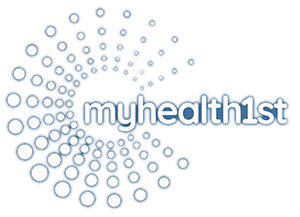 A spoonful of sugar helps the medicine go down…but that may be where the benefits end.
A spoonful of sugar helps the medicine go down…but that may be where the benefits end.
Added sugar is not an essential nutrient. The recommended daily allowance for added sugar is 0g. So, if we do not need added sugar in our diet, why do we find it in everything from whole wheat bread to pasta sauce to peanut butter? The answer is simple; added sugar makes us crave a food more, eat a food more and therefore, buy a food more! The same is true for added salt and fat but those are stories for another day.
What can you do to combat the abundance of added sugar in your diet? The first step is knowledge. Now that you know sugar is added to many foods, you must become a detective. You must learn to read labels and learn to read ingredients.

Remember, some foods have naturally occurring sugars and this is fine. It is added sugars we want to avoid. For example, ½ Cup of organic soybeans contains 2g of naturally occurring sugar. With all the protein, fiber and healthy fat in soybeans, the sugar is absorbed slowly and will not cause your blood sugar to rise abnormally. Fruits
Fruits contain naturally occurring sugars and can be part of a healthy Blood Type Diet. Berries are Blood Type Diet Superfoods as they are low in sugar and high in antioxidants. One Cup of Wild Blueberries contains 10g of sugar. A typical serving of berries is ½ cup on top of Organic Gluten Free Oats or Quinoa with ground flax or chia seeds, walnuts, and organic unsweetened Soy or Almond milk in a tasty Overnight Oats Recipe (Note: I omit the Agave and add Cinnamon).
Just because fruit can be part of a healthy Blood Type Diet, does not mean that you should throw all caution to the wind and eat pounds of fruit on a daily basis. Moderation is key. Find the low sugar, high nutrient fruits for your type and incorporate them into your diet.
When consuming fruit, recognize that not all forms of fruit are created equal. Dried fruit has the water removed so the sugar is concentrated. This causes spikes in blood sugar and triglycerides. The naturally occurring water in whole fruit slows absorption and takes up space in your stomach, so you feel fuller longer with whole fruit than you would with dried fruit. Keep this in mind as incorporate fruit into your diet.
Fruit juices are missing the fiber and nutrients of the whole fruit so all that is left is sugar and flavor. While tasty, fruit juices are high in sugar and calories and spike blood sugar rapidly. Fruit juice, like dried fruit, is not a healthy choice when compared to whole fruits.
Finally, artificial sweeteners are not a healthy alternative. They are foreign to the body and have negative impacts on the gut microbiome. They should be avoided. Common artificial sweeteners include Splenda, Saccharin, NutraSweet (Equal), Stevia, and the sugar alcohols Xylitol and Erythritol. If, on occasion, you have a little Stevia in your tea, you will probably be just fine. The key is not to make it a regular part of your diet. Should you need a little sweetness, add some date syrup, maple syrup, honey, or blackstrap molasses. All of these are natural sweeteners that can be consumed in moderation as part of a healthy diet. Be sure to use the ones that are most beneficial for your type and remember that they are still added sugar.
The best way to get your sugar cravings under control is to go cold turkey. After a few days of abstinence from added sugars, your tastebuds change and foods that used to not taste sweet take on new flavor, and you take on the way to better health!
If you need help kicking sugar addiction, learning to make healthier food choices or want to lose weight in the New Year, check out our health coaching and nutrition, as well as our new medical weight loss program! We are here for you!
May your New Year be sweet but not full of added sugar!

Dr. Jane Bowser is a certified health coach, nutritionist, and personal trainer, blending academic expertise with a passion for holistic wellness.

Join our newsletter for health news and My Health 1st events.